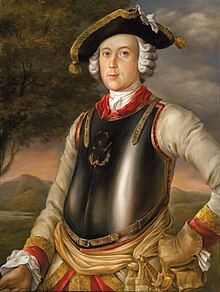
Back بارون Arabic بارون ARZ Barón AST Барон Byelorussian Барон Bulgarian ব্যারন Bengali/Bangla বারাও BPY Барон BXR Baró Catalan بارۆن CKB
| Part of a series on |
| Imperial, royal, noble, gentry and chivalric ranks in Europe |
|---|
 |

Baron is a rank of nobility or title of honour, often hereditary, in various European countries, either current or historical. The female equivalent is baroness. Typically, the title denotes an aristocrat who ranks higher than a lord or knight, but lower than a viscount or count. Often, barons hold their fief – their lands and income – directly from the monarch. Barons are less often the vassals of other nobles. In many kingdoms, they were entitled to wear a smaller form of a crown called a coronet.
The term originates from the Latin term barō, via Old French. The use of the title baron came to England via the Norman Conquest of 1066, then the Normans brought the title to Scotland and Southern Italy. It later spread to Scandinavian and Slavic lands.
- ^ Blamires, David (2009), "The Adventures of Baron Munchausen", Telling Tales: The Impact of Germany on English Children's Books 1780–1918, OBP collection, Cambridge, Cambridgeshire: Open Book Publishers, pp. 8–21, ISBN 9781906924119, archived from the original on 17 May 2013, retrieved 7 October 2020